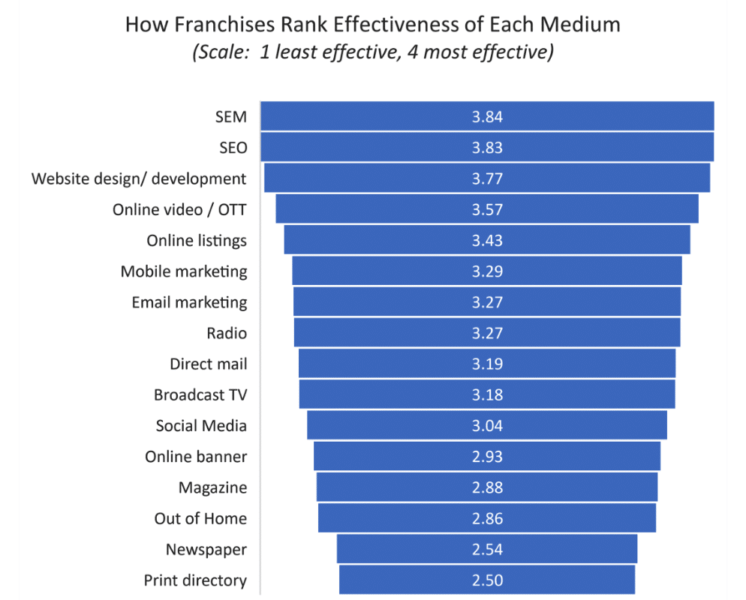Search Engine Land’s daily brief features daily insights, news, tips, and essential bits of wisdom for today’s search marketer. If you would like to read this before the rest of the internet does, sign up here to get it delivered to your inbox daily.
Good morning, Marketers, what does headless mean to you?
The week has begun on a very busy note, as I’ve been neck-deep in preparation for our MarTech conference coming up March 16 and 17. Most exciting for me has been a foray into the creation of video content tied to some of our Martech Intelligence Reports. In each video, we look at how the conference theme — “the changing customer” (which includes B2B buyers) — is impacting technologies like customer data platforms, B2B marketing automation platforms, digital asset management platforms and marketing attribution and predictive analytics systems. I hope you’ll join us to check them out. And all of the other great programming in the works, of course.
Last week I promised we’d be doing some research in our Tuesday research newsletter. So, here we go. This week’s brief research question: Have you ever heard of a headless CMS? We hope you’ll (very) quickly give us a yes or no answer and we’ll share the result next week.
Read on for more including the fate of targeted ads under Virginia’s CDPA and the tactics of marketing “masters.”
Pamela Parker,
Research Director
PPC and SEO rank top in effectiveness for local marketers

Search engine marketing and search engine optimization are topping the “most effective” chart among what Borrell calls “Local Marketing Masters” — survey respondents the research firm identifies as having the greatest amount of experience.
In its recently-released report called “The 2021 Mindset of Local Marketing Masters,” the company found many digital marketing channels outperforming traditional ones, with the old standby “print directory listings” coming in at the very bottom.
Other findings show that Social Media is the most commonly-used marketing channel among these masters, with 95% of them employing it, followed by email marketing (79%), SEO (70%) and web design/development (69%). Interestingly, OTT/Online Video appears to be set for big growth, as respondents reported plans to increase budgets dedicated to the medium by 25% this year.
Is the CDP out to get the marketing automation platform?
The must-have much-hyped customer data platform (CDP) appears to have its eyes on B2B marketers, promising to handle vast amounts of data to deliver highly-personalized customer experiences. Adobe’s Real-time CDP announced new features aimed at B2B brands in November 2020, which include a pre-built connector to its B2B Marketing Automation Platform, Marketo Engage. Dun & Bradstreet, with its D&B Lattice CDP, also understandably has a primarily B2B focus.
Though CDP platforms are still relatively new, adoption has been rapid and these tools could eventually pose a threat to marketing automation platforms as they provide some of the same tools and functionalities.
Read more about Marketing Automation Platforms>>
How targeted advertising is impacted under Virginia’s CDPA
Virginia’s Consumer Data Protection Act (CDPA) has been signed into law by Governor Ralph Northam, and will come into effect on Jan 1, 2023. It’s already being compared with Europe’s GDPR and California’s CCPA, but trying to establish whether it is more lenient or more stringent than those attempts to protect consumer data is almost beside the point. It’s a singular piece of legislation with its own quirks and confusions.
For one thing, it gives consumers no right of private action — only the state’s Attorney General will be able to bring lawsuits under the provisions of the Act. For another, it withholds its protection from individuals “acting in a commercial or employment context.” That appears to mean that your data is not protected if you are browsing for work purposes; or from the marketer’s perspective, B2C marketing efforts need to be in compliance with CDPA; B2B campaigns, perhaps not.
Perhaps strangest of all, while Virginia consumers are entitled to opt out of having their personal data processed for the purpose of targeted advertising, the following is not considered targeted advertising: “Advertisements based on the context of a consumer’s current search query, visit to a website, or online application.” It seems that PPC campaigns are going to be just fine — because search ads are based on a “current search query”.
It’s early days for making sense of this legislation, and figuring out how brands marketing to Virginians should comply in practice.
Google ranking changes, SEO blackmail and FLoC a terrible idea.
More Google algorithm ranking shifts. Like we spoke about in Friday’s newsletter, the Google search rankings have been pretty all over the place. Well, this past weekend was more of the same — a lot of chatter and signs that another Google update happened over the weekend.
SEO blackmail – ignore them. Is someone trying to blackmail you with negative SEO threats? Google’s John Mueller again said you should just ignore them. He has said the same thing numerous times.
FLoC – “a terrible idea”. The Electronic Frontier Foundation, a nonprofit digital rights group based in San Francisco, California, said that Google’s new tracking methodology, FLoC, is a “terrible idea,” expressing disdain for this alternative to cookies.
We’ve curated our picks from across the web so you can retire your feed reader.
http://feeds.searchengineland.com/~r/searchengineland/~3/v8cYER-gK1s/virginias-privacy-legislation-and-targeted-ads-346749


